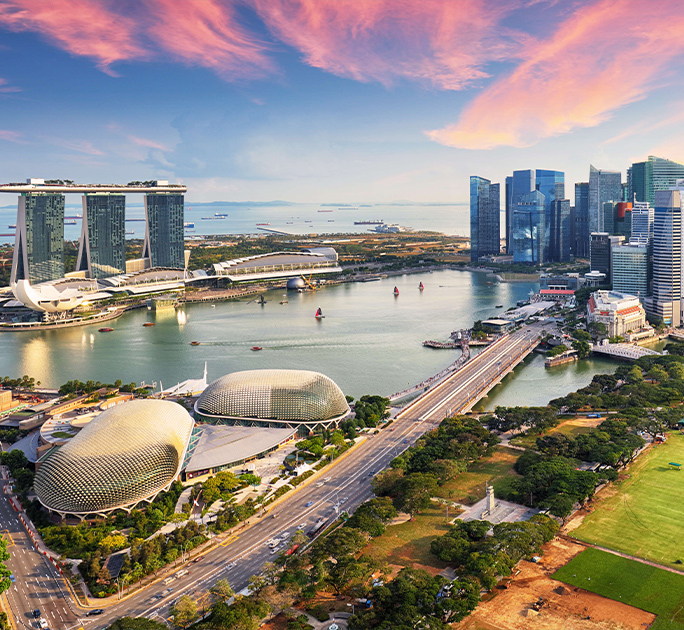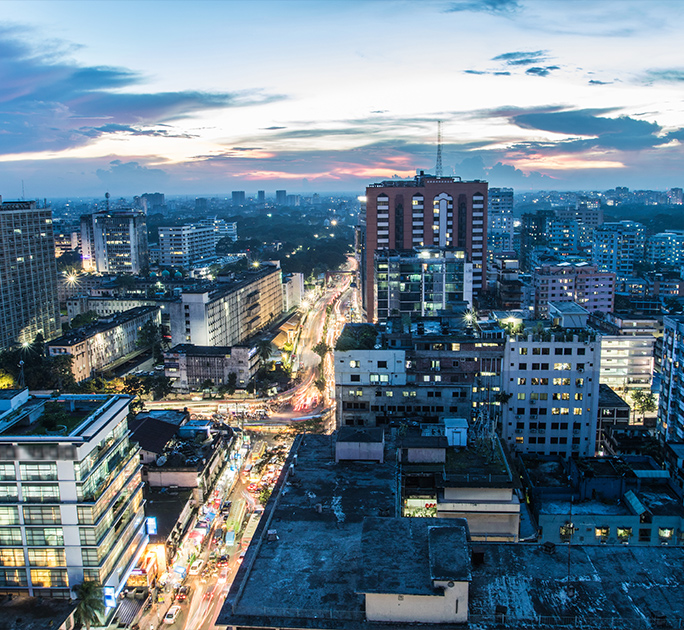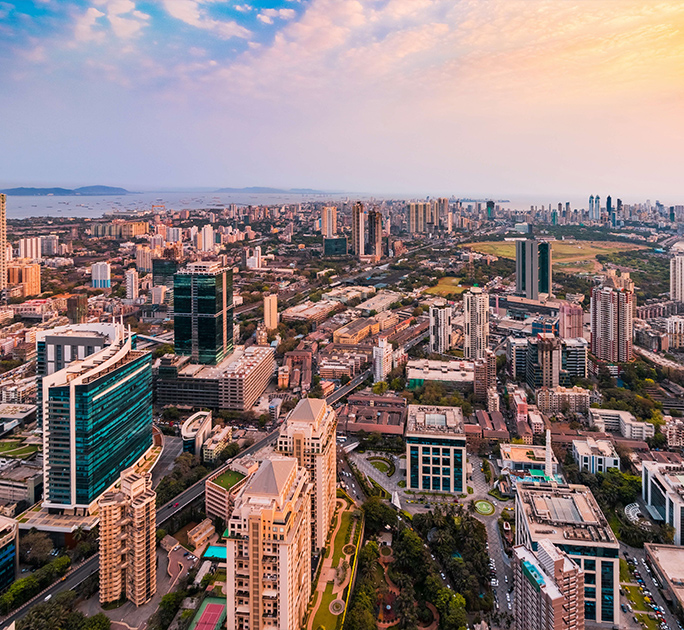About The UAE
The economy of the United Arab Emirates (UAE) is the third largest amongst the Arab countries and is the most diverse economy in the Gulf Cooperation Council (GCC). The UAE is considered to be one of the most open economies in the world. With a location linked to Asia, Europe and Africa, the UAE is an attractive region for foreign investment.
While its economy is largely oil-driven, the UAE government has diversified and established financial centres within the Gulf state to attract investment. One of these financial centres is the Dubai International Financial Centre (DIFC), a special economic zone in the UAE, which serves as a gateway to the Middle East, Africa and South Asia (MEASA) markets.
The government has recently amended laws to allow 100% foreign ownership of companies involved in 122 different activities in agriculture, manufacturing, and services, which removes the need for a local partner. Companies may also opt for 100% ownership in one of the UAE’s free-trade zones. Other benefits, such as 0% tax rates and an English-speaking environment, have made Dubai and the rest of the UAE an attractive destination for foreign investments. The lack of capital requirements to establish businesses, a streamlined licensing procedure and a stable banking sector have further enhanced the business climate in the UAE.
The UAE has most of its trading relationships within the MEASA markets and is well positioned to act as a strategic hub between the East and West. Its main export partners are Japan, India, and Iran.
Corporate Treasury in United Arab Emirates
The UAE, which is a federation of seven states (Abu Dhabi, Ajman, Dubai, Fujairah, Ras al Khaimah, Sharjah and Umm al Quwain), is one of the largest economies in the Middle East and serves as a financial hub for the region and Africa. In this section, we highlight some of the key factors relevant to treasury and cash management in the UAE.
Financial Market Development
- Dubai is ranked 19th and Abu Dhabi is ranked 38th in the 2021 Global Financial Centres index by Z/Yen Group.
- The UAE has a highly developed business infrastructure, an excellent macroeconomic environment, an efficient labour market and strong legal rights.
- The UAE has no foreign-exchange controls.
- There are 45 free-trade zones, known as Free Zones, in the UAE that have special tax, customs and imports regimes, as well as their own regulations. Each Free Zone is designed around one or more business categories and only offers licenses to companies in these categories.
- The DIFC supports innovation through a financial technology (fintech) accelerator, regulatory sandbox, and a USD100 million fintech fund. It has also developed a dedicated commercial licence for fintech, regulatory technology (regtech) and insurance technology (insurtech) firms.
Sophistication of Banking Systems
- The UAE has 21 domestic banks and 37 foreign banks, while around 40 foreign banks also operate representative offices. The three largest banks are majority state-owned. There are eight dedicated Islamic banks in the UAE, which account for 26% of the banking sector's total deposits.
- The UAE is the main foreign-exchange hub for the region and an offshore renminbi centre.
- Dubai is the world's largest centre for sukuk listings, which totalled USD76.04 billion at the end of 2020. Conventional bonds issued by governments and corporations are also available.
Regulatory Bodies
- The banking industry is regulated by the Central Bank of the United Arab Emirates. Regulation is in line with international standards.
- The DIFC is regulated by the Dubai Financial Services Authority.
Tax
The UAE does not have a federal corporate income tax (CIT) regime at present. Each of the seven Emirates has its own income tax decree, with scope to impose CIT on all companies (including branches and permanent establishments) at a rate up to 55%. For the most part, CIT is only enforced on oil companies engaged in upstream petroleum activities and branches of foreign banks, which are subject to CIT at a flat rate of 20%.
- The standard rate for Value Added Tax (VAT) is 5%, with certain goods and services being zero rated and some exempted.
- There are no stamp duties in the UAE.
- There are no withholding taxes in the UAE.
- The UAE has 45 Free Zones in which businesses are generally eligible for tax holidays of 15 to 50 years.
- The UAE has tax treaties with more than 95 countries and territories.
- The UAE is a signatory to the Organisation for Economic Co-operation and Development's Multilateral Competent Authority Agreement, through which information is exchanged between tax administrations, to provide a single, global picture on some key indicators of economic activity within multinational enterprises.
Benefits for Regional Treasury Centres
- The DIFC acts as the regional financial hub for the Middle East and Africa.
- It is a popular location for companies’ regional treasury and pooling operations, as well as shared service centres.
- The UAE is a low-tax environment with trading hours that overlap with Southeast Asia and Europe.
- Cash concentration between resident and non-resident companies and cross-border cash concentration is permitted in the UAE.
- Notional pooling and cross-border notional pooling are permitted.






